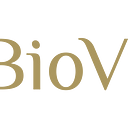Gauge Your Age: Telomeres or an Epigenetic Clock?
While it has long been observed that people tend to age at different rates, the underlying mechanisms were not always understood. Conventional wisdom is partly correct to attribute this phenomenon to genetics. Someone who ages gracefully and enjoys a lengthy life is thought to have “good genes.” As gerontology advances, aspects of aging emerge that are within our power to influence as our genomes do not have the final word in our health and lifespan.
What then are the major players in our biological age (best predictors of lifespan) as opposed to our chronological age (years on Earth) beyond the luck of the draw? Among a variety of biomarkers, a few stand out. Two of the most significant are telomere length and DNA methylation (Marioni, 2018).
Both have been understood as being predictive of independent aspects of aging. but are respectively excellent tools to uncover our biological age. In a cohort examining telomere length, it was found to explain 6.6% of the variance in aging whereas epigenetic clock (DNA methylation) accounted for 19.8%. Together they accounted for 25.9% of biological variance in aging. (Marioni, 2018)
Telomeres, a linchpin of longevity, are specialized structures involved in the replication and integrity of DNA. Telomere length diminishes as we age. The process of telomere attrition is linked with senescence (cellular aging), apoptosis (cellular death), and oncogenic (cancerous) mutation of cells (Shammas, 2011).
The silver lining is that new interventions, including gene therapy, have resulted in phenomenal results in recent research. As one researcher noted in a mammalian model, telomerase induction gene therapy “had remarkable beneficial effects on health and fitness, including insulin sensitivity, osteoporosis, neuromuscular coordination and several molecular biomarkers of aging” (de Jesus, 2012). BioViva has recently had remarkable success in a murine study with telomerase gene therapy.
DNA methylation, which accounts for even more of the variance in aging than telomere attrition, is of immense interest to longevity research. Disparities between the epigenetic clock of DNA methylation and chronological age have been saliently observed, especially in individuals with HIV, Down syndrome, obesity, and those subject to early menopause. (Chen, 2017). Notably, a study examining four cohort groups discovered that accelerated DNA methylation levels predict mortality independently of known genetic factors, health status, and lifestyle factors (Marioni, 2015).
Differences between methylation age and chronological age predicts mortality risk with more accuracy than smoking, cardiovascular disease, diabetes, high blood pressure and a host of other factors (Marioni, 2015). Although there is a genetic component, DNA methylation levels are influenced by factors within our control such as lifestyle choices (Mathers, 2010).
The capacity to influence one’s DNA methylation levels is why BioViva offers a state-of-the-art methylation testing kit, BioViva TimeKeeper.™ This premium kit gives you the most data on the market. Bioviva will determine your biological age by measuring the epigenetic modifications on your DNA. With this you will be empowered with the knowledge and ability to better influence your own prospective outcome.
References and Suggested Reading
Marioni RE, Harris SE, Shah S, et al. The epigenetic clock and telomere length are independently associated with chronological age and mortality [published correction appears in Int J Epidemiol. 2018 Feb 1;47(1):356]. Int J Epidemiol. 2018;45(2):424–432. doi:10.1093/ije/dyw041
Shammas MA. Telomeres, lifestyle, cancer, and aging. Curr Opin Clin Nutr Metab Care. 2011;14(1):28–34. doi:10.1097/MCO.0b013e32834121b1
Bernardes de Jesus B, Vera E, Schneeberger K, et al. Telomerase gene therapy in adult and old mice delays aging and increases longevity without increasing cancer. EMBO Mol Med. 2012;4(8):691–704. doi:10.1002/emmm.201200245
Chen BH, Carty CL, Kimura M, et al. Leukocyte telomere length, T cell composition and DNA methylation age. Aging (Albany NY). 2017;9(9):1983–1995. doi:10.18632/aging.101293
Marioni RE, Shah S, McRae AF, et al. DNA methylation age of blood predicts all-cause mortality in later life. Genome Biol. 2015;16(1):25. Published 2015 Jan 30. doi:10.1186/s13059–015–0584–6
Mathers JC, Strathdee G, Relton CL. Induction of epigenetic alterations by dietary and other environmental factors. Adv Genetics. 2010;71:3–39. doi: 10.1016/B978–0–12–380864–6.00001–8.
Authored by John Ryan
John Ryan is an independent writer and an avid enthusiast of blockchain technology. He received his University education at Northern Michigan University, as a history major, where he was inducted into the Phi Beta Kappa Society for academic excellence. While in Michigan, he also trained as an athlete at the United States Olympic Education Center, where he achieved the status of a multiple-time University All-American in Greco-Roman wrestling. He has authored several plays and a collection of poetry. Some of his major areas of interests includes: Finance, Literature, and Religious Studies.
John is available to contact via email at: arete.aphthiton@gmail.com
